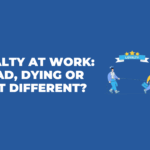
Should you hire for potential? In today’s competitive job market, companies often struggle to find qualified candidates with enough experience or relevant skills. Exceptional and highly-skilled talent do not wait around to fill open positions. As one would expect, great opportunities effortlessly come to them.
When great candidates are few and far between, hiring managers may be inclined to bridge the gap in necessary skills and experience by hiring for potential. This means taking on a forward-looking approach to the work they can deliver down the road, based on their qualities.
Evaluating a candidate who lacks the relevant experience or has some glaring weaknesses could prove tricky. To spot a promising candidate that has the potential to become a valuable addition to the company, here are some of the things you should be looking for.
Enthusiasm
Eagerness indicates that a candidate is excited, engaged and determined to land the job. Enthusiasm can also serve as a driving force in transforming high-potential candidates into seasoned, valued employees. Discuss the challenges of the role they’re applying for to see they’re willingness to take them on. Also gauge how eager and motivated they are to get up to speed with upfront training.
Enthusiastic employees are generally more receptive to learning and are keen on developing new skills. They have the drive and the hunger to succeed in the role and forge on even when they’re struggling or facing setbacks.
Transferable skills
High-potential candidates understandably won’t check off all the boxes and possess the exact skills that the job requires. However, it’s important to look into the other great qualities that candidates do have such as transferable skills.
Communication skills, leadership ability, adaptability, interpersonal skills, and critical thinking are just some of the desirable traits that are important to job success. They are crucial not only in determining company fit but also provide a solid foundation on which other job skills can be developed.
A candidate with a good range of transferable skills can make a positive impact from the get-go as they put these skills to use when navigating their new role. Their ability to apply these skills to the job can be assessed more thoroughly during the interview process. Ask them to give real-life examples of how their skills have allowed them to yield successful outcomes or provide effective solutions to tasks.
Capacity for learning
While knowledge and skills are definitely important, judging candidates based on these two factors can be limiting. When quality candidates are scarce, writing off those who don’t match all the requirements isn’t always the best approach. Knowledge is always attainable and skills can be developed.
The capacity to continue to grow and learn will have a tremendous impact in transforming and improving an employee who’s settling into a new role. Ask candidates to describe the steps they’ve taken to learn something new. Let them elaborate on how they would approach learning curves at a job. Assess how proactive they are about tapping into the knowledge of colleagues or superiors.
Willingness to learn also shows that the candidate is coachable and open to feedback and ideas. Whether it’s taking on new responsibilities, updating your skills or just adapting to new ways of working, an employee who has a high capacity for learning is on track to thrive in any role.
While there is no certainty in the hiring process, the importance of recruiting the right staff can make all the difference in how successful a business is and where it’s heading in the future. While looking for the “perfect” candidate, understand what the basic requirements are and look for potential to grow and excel in the job.






